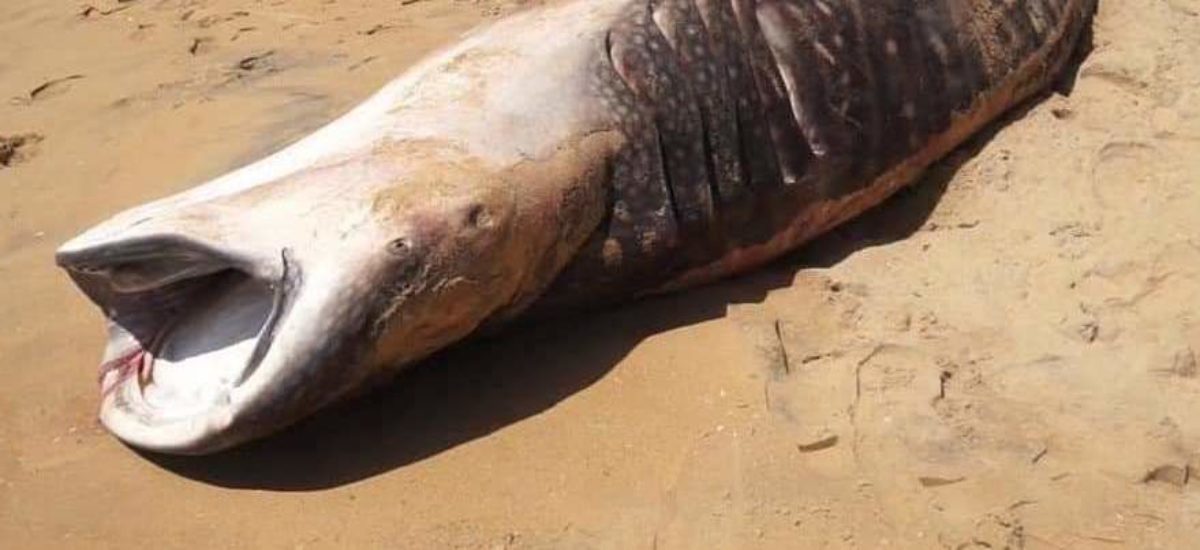Photo courtesy of Jayantha Wijesingha
Sri Lanka has seen various large scale environmental disasters over its history from British colonial rulers scraping out the the central hills for tea to the fast paced Mahavali River diversion project and various unsustainable development projects that have done irreversible harm to our environment. The Land Reform Commission that blocked out large tracts of forests lands and the introduction of agrochemicals by British companies in 70s have also done great damage in terms of human health, environmental degradation and sociocultural status.
When it comes to the marine environment, the greatest disaster is undoubtedly the X-Press Pearl ship catastrophe. Its impact will last for several generations, ranging from the plastic pollution to the death of coral reefs along with the loss of marine biodiversity. Various types of long term consequences will be felt on marine life that will develop diseases and mutations of species occuringfor at least half century.
The ship disaster has many impacts on Sri Lanka and the region as a whole. In Sri Lanka, it varies from environmental costs including loss of ecosystem services, direct economic costs, sociological costs, cultural costs, costs to tourism, health costs, reputation loss, future costs, direct and indirect impact on coastal livelihood and climate costs.
However I am doubtful as to how much of these costs will be used in calculating the total price of the devastation. A minimum of $10 billion must be claimed. The interim relief claim we sought was far too little, which gave a wrong signal at the outset to the the shipping company and as well as their insurers.
A $400 million tourism venture that was supposed to come into the country is reconsidering the investment. This is just one story out of many that will happen with an ocean that is almost dead.
Many experts have expressed their dismay and discontent over how the calamity was handled from the beginning to the present. Some marine biologists claimed that the leaking of chemicals and its pollution may not result in marine life being lost, citingdilution in salt water without any serious impact. But they have been proven completely wrong, raising the question of whetherwe can rely on our academia.
What is more puzzling is that the authorities are yet to confirm that there is no ongoing contamination from the sunken ship. The continuous deaths of marine animals prove that the shipwreck area is still being contaminated.
If we are going to keep the shipwreck as it is for much more longer, the contamination will increase. The government is carrying out testing on possible radiation in the ocean and in the coastal zone by collecting water and soil. I doubt if we have a list of all the chemicals that were on board the ship and the potential compounds being formed because of mixing of the chemicals, burning of the chemicals and of them getting mixed with sea water. We should have developed various chemical reaction models by now and predicted the impact on marine life and environment. I do not know if we are able to do this.
We do not know the results of the testing and analysis done on the dead marine life and water samples that were collected; there is no report for the public to verify or challenge the findings and receive answers to many questions. The institutions that are responsible for explaining the science are witholding information from the public.
Our turtles, dolphins, whales, fish and corals are dying. Our biggest ecosystem is dying as a result of what was a completely avoidable disaster. No one is being held accountable; everybody is passing the buck so there is a situation where we no longer have anyone who should be or could be held accountable. While we are focusing only on the compensation, which obviously is a priority, we have overlooked the other priority of how to avoid a similar catastrophe in the future. I hope that the authorities will concentrate on improving and strengthening our capabilities of handling any future marine disasters with strong cooporation with neighbouring navel powers.


